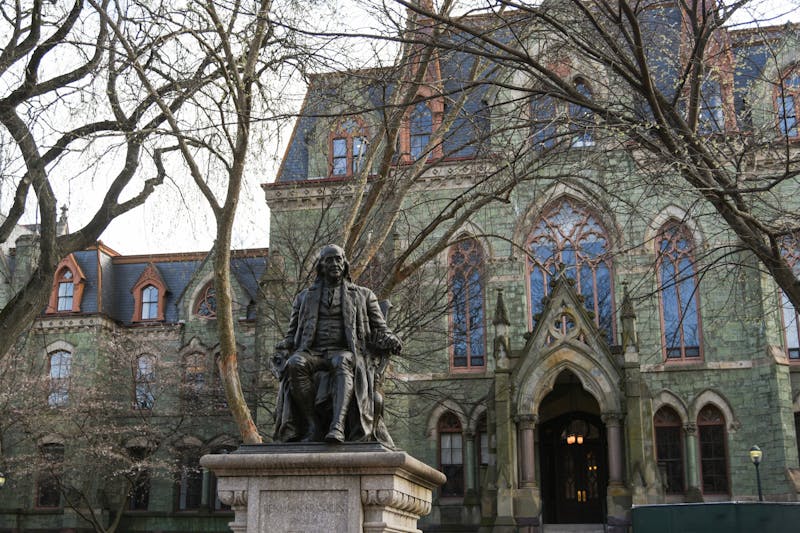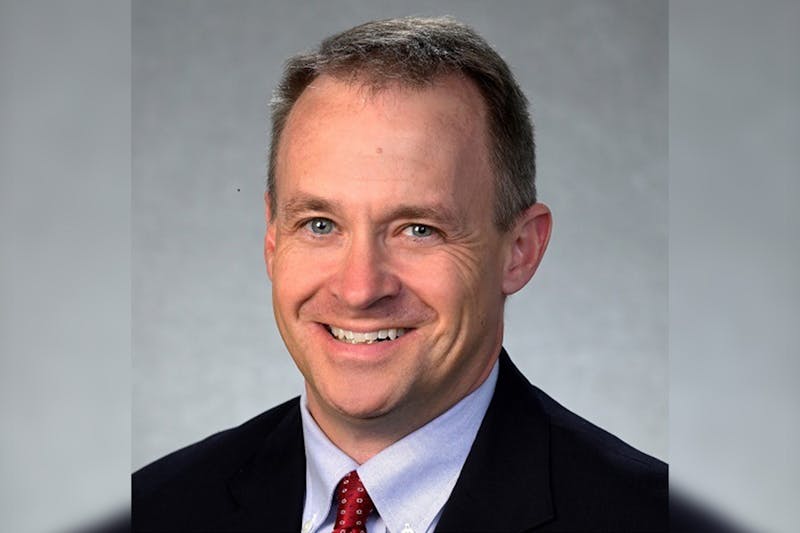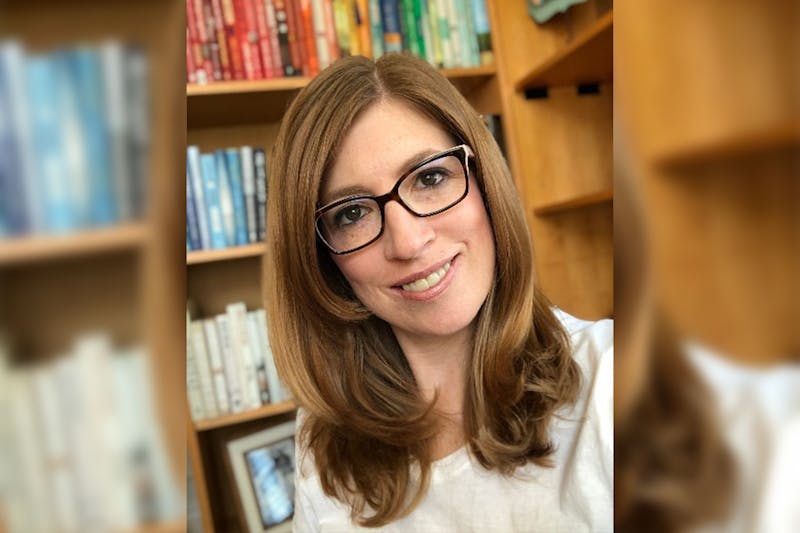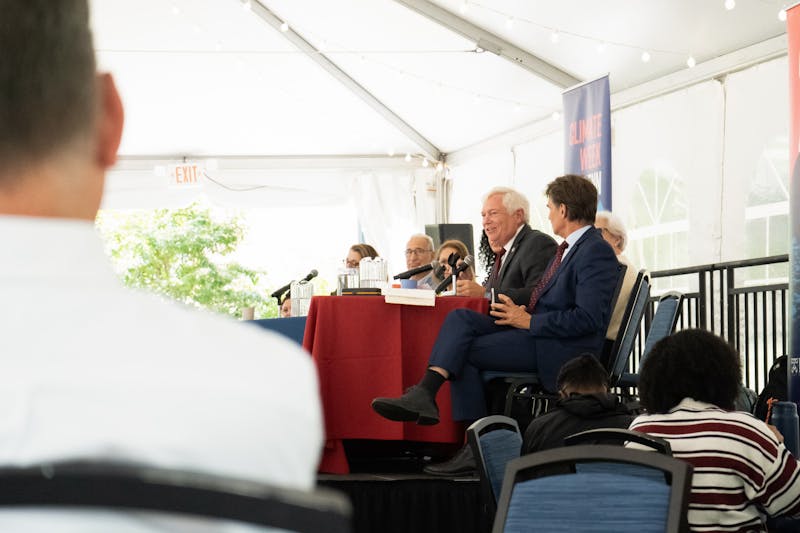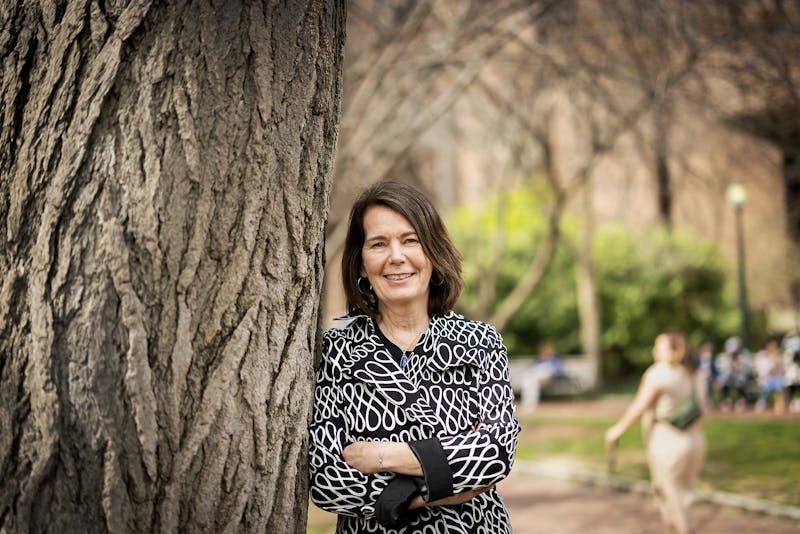
Jonathan Epstein has served as interim dean of the Perelman School of Medicine for more than four months (Photo from Penn Medicine).
In December 2023, Jonathan Epstein was appointed interim executive vice president of the University of Pennsylvania Health System and dean of the Perelman School of Medicine. He assumed his role during a period of administrative transition — his appointment was announced the same day that Larry Jameson was appointed Penn's interim president, and three days after former Penn President Liz Magill resigned.
Epstein has now served in his role for four months. The Daily Pennsylvanian sat down with him last week to discuss his experience with the abrupt leadership transition and his priorities in the new role.
Epstein said that, in the week following Magill's resignation, he received a call from Jameson asking him if he would be interested in filling the role of interim dean — and responded that he would be happy to do so if Jameson thought it would help the University.
“I felt comfortable doing it. I felt competent to do it," Epstein said. "So, I was happy to be asked, and I didn’t really have to think about it very long.”
Epstein added that he had worked along Jameson, his predecessor, for almost nine years before their respective promotions. Epstein formerly held the role of the medical school's chief scientific officer, which reported directly to Jameson.
“I did think that Larry Jameson would be the right person [for the interim presidency] and an outstanding interim president, knowing him so well," Epstein said. "I suspected he would be asked because I know how good he is.”
Despite speaking extremely favorably of Jameson, Epstein declined to endorse him for the permanent presidency — stating that "that's a job for the trustees and for search committee."
Epstein also said that he will "serve [in his interim role] as long as they want [him] to serve," but said that, by policy, the University will do a national search for a new dean.
"I think it's healthy for the institution to have a permanent dean in place. On the other hand, I think the school is functioning very well, so I don't think there's any emergency about it," Epstein said.
Epstein also said that Penn Medicine has been less affected than other parts of the University by the ongoing donor backlash due to the University's response to the Israel-Hamas war. Epstein said that most of the donors he has spoken with “care more about the advances in health care and in scientific discovery, and have continued to be supportive of that.”
He further called his ascension to the role of dean and executive vice president a "smooth transition" because of his past familiarity with the day-to-day workings of the dean’s office and experience discussing strategies with Jameson.
Epstein described his previous role as CSO as overseeing the academic and research mission of the medical school and supported faculty, staff, and students so that “they can be as successful as possible.”
While he did not take credit for their successes, Epstein said that an accomplishment of his tenure as CSO was helping Penn Med become known for “being excellent at translating fundamental new discoveries to be real cures that affect people,” citing CAR-T cells, mRNA vaccines, and gene therapies as examples.
“We’ve really shifted the paradigm to take drug development from discovery all the way to FDA approval in house in a way that has gotten notice from our peers and internationally,” Epstein said.
Epstein said that, in his new roles, he plans to continue implementing Penn Med's most recent Strategic Plan, which was initiated by Jameson for the years 2023 to 2028, and addresses issues such as health inequities and access to medicine.
“A large number of our faculty and our programs are trying to drill down into the underlying drivers of those inequities and are trying to influence policy at the national level,” said Epstein.
He said that he hopes to continue the efforts Penn Med has made toward discovering new therapies while making them more accessible to everybody who needs them and allowing them to have “maximum impact in our communities” — a point which is also listed in the strategic plan.
“We make wonderful new therapies, but they’re too expensive,” Epstein said.
Epstein said that he is pushing another goal in the Strategic Plan, to reduce the cost of education for medical school students, as an area of focus — citing Penn Med's efforts to raise additional funds to provide scholarships for their students. He also shared that Penn Med is currently in negotiations about salaries with the residents who voted to unionize, and he hopes that they will come to a fair resolution.
“The most important thing that I’ve tried to convey to our residents and our students is that our commitment to outstanding education isn’t going to change,” Epstein said.
The Daily Pennsylvanian is an independent, student-run newspaper. Please consider making a donation to support the coverage that shapes the University. Your generosity ensures a future of strong journalism at Penn.
Donate




